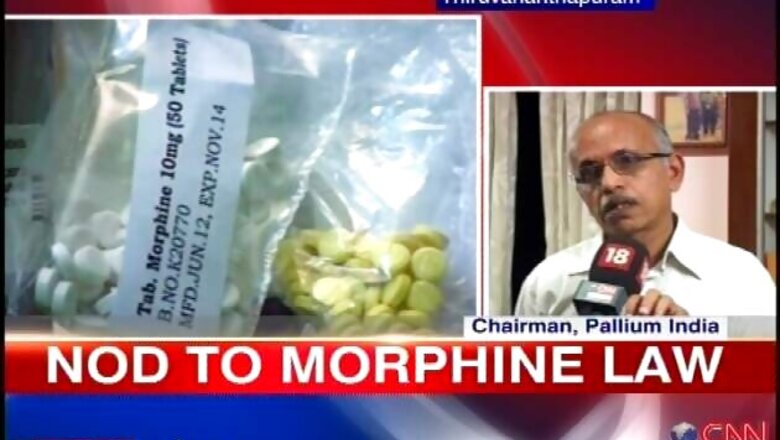
views
New Delhi: In a decision that would be a relief for lakhs of cancer patients in India, Parliament on its last day of the winter session on Friday, passed a bill amending the Narcotics Drugs and Psychotropic Substances Act to allow access to morphine as a pain-reliever.
The move will result in cancer patients in India getting an easier access to morphine for the first time since 1985 when the country enacted the Narcotics law. The hospitals will now be allowed to prescribe and supply morphine to patients by applying for a single permit.
Moving the Narcotic Drugs and Psychotropic Substances (Amendment) Bill, 2011 for consideration and passage in Rajya Sabha, Minister of State for Finance JD Salem said though India produced 90 per cent of morphines in the world, these were not easily available in leading city hospitals.
"We need to get the crop, but at the same time, we will have to be cautious against trafficking. We need to make the drug available," he said, adding with the passage of legislation, availability of morphines would go up by 40 per cent.
Morphine is a derivative of opium.The availability of the drug was under strict regulation under the existing Act of 1985 which mandated patients to go through a few rounds of paperwork before availing it.
While passing the Bill, the Lok Sabha simplified the regulations for procuring and possessing narcotic drugs when used for medicinal purposes. The then Finance Minister Pranab Mukherjee introduced the Bill in the lower house in 2011.
Responding to a question on the misuse of narcotics, he urged the states through members to keep a tab saying, "Law is just a law. The question is how effectively and efficiently it is used."
The amendments prescribe the forms and conditions of the licence or permits for the manufacture, possession, transport, import inter-state, export inter-state, sale, purchase, consumption or use of essential narcotic drugs and charge a fee for that.
The Indian Association of Palliative Care (IAPC) had been pushing for the passage of the amendment Bill in Parliament.




















Comments
0 comment